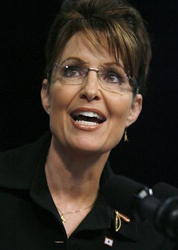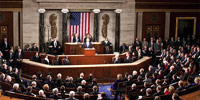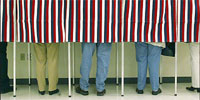Gary Dorrien: Impulsive Distractions
By the end of the Democratic Convention, John McCain knew that his campaign was in deep trouble. Hillary and Bill Clinton had rallied her followers to get behind Barack Obama; Obama closed the convention with a spectacular speech in a stadium spectacle; all of McCain’s vice-presidential contenders were either boring or unacceptable to the evangelical right or both; the Republican right-wing base was sour and depressed; and the Republican Convention was scheduled to begin with George W. Bush and Dick Cheney night.
McCain realized where all of that was leading, and it galled him that so many Democratic speakers dismissed his claim to maverick status as laughable. John Kerry chided that his friend McCain, before trying to debate Obama, needed to have a debate with himself. Others suggested that McCain abandoned his independence so long ago he represented a third Bush term in all but name; supporting Bush 90 percent of the time was not quite the mark of a maverick.
That must have hit close to home, since McCain prizes his (outdated) reputation for independence. He wants to be recognized as a clean-government reformer almost as much as he wants to be president; plus, the two things go together in this year’s electoral aftermath of the Bush debacle. So at the last moment McCain made the most important decision of his campaign by opting for an unknown running mate whom he had met twice and interviewed a single time.
 Sarah Palin’s vetting was apparently a one-day affair, occurring the day before McCain offered her the nomination. The process was too rushed to have covered much of anything. Did McCain realize how little Palin knows about the world? Did he know that she had never traveled abroad until 2007? Did he even know she assiduously promoted the “bridge to nowhere” before she became the clean-government governor that turned against it?
Sarah Palin’s vetting was apparently a one-day affair, occurring the day before McCain offered her the nomination. The process was too rushed to have covered much of anything. Did McCain realize how little Palin knows about the world? Did he know that she had never traveled abroad until 2007? Did he even know she assiduously promoted the “bridge to nowhere” before she became the clean-government governor that turned against it?
Too much of the early media scrutiny along this line has fixated on a family issue that should be out of bounds in a political campaign; no candidate deserves to have her or his children roasted in the media. McCain may well have stumbled into lifting up the next star of the Republican Party. Palin has already electrified the party’s base and provided a godsend-distraction from eight years of job losses, disappearing health coverage, massive budget and trade deficits, a two-and-a-half trillion dollar mortgage meltdown, a two-trillion dollar disaster in Iraq, and a damaged American image in the world.
But whatever Palin’s strengths or weaknesses as a political performer may turn out to be, McCain’s turn to her confirms the most unsettling thing about him — his impulsive temperament. I opposed Howard Dean’s candidacy for the presidency in 2004, despite sharing his opposition to the war in Iraq, because he struck me from the beginning as lacking the requisite self-discipline and prudence for the job. McCain has similar problems on a larger scale. He has an amply founded reputation for shooting first and thinking later; even his friends describe him as volatile and quarrelsome. Though considerate to staff underlings, McCain’s hair-trigger rages against colleagues are legendary in the Senate. These tendencies correlate with his militaristic mindset and his distinctly self-righteous view of himself as a crusader for the public interest surrounded by corruptible types.
On the first night of the convention, Hurricane Gustav rescued the Republican Party from an entire night of George Bush and Dick Cheney. On the second night the party featured its patriotic militarism as a party-unifying theme and told the story of McCain’s war heroism. That is not much of a platform for a presidential campaign, but the party has the immense distraction of Palin’s novelty on its side, which will at least allow the McCain campaign to survive its own convention.
–Gary Dorrien is the Reinhold Niebuhr Professor of Social Ethics at Union Theological Seminary and professor of religion at Columbia University.






